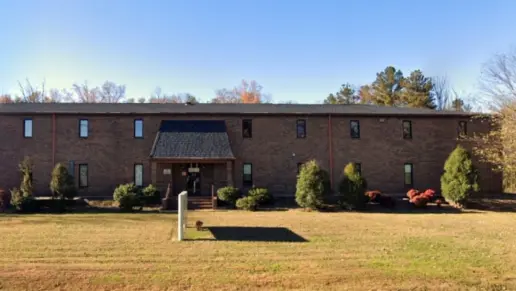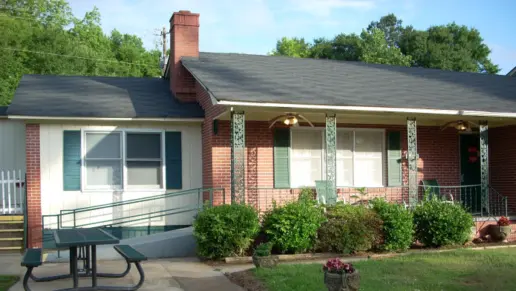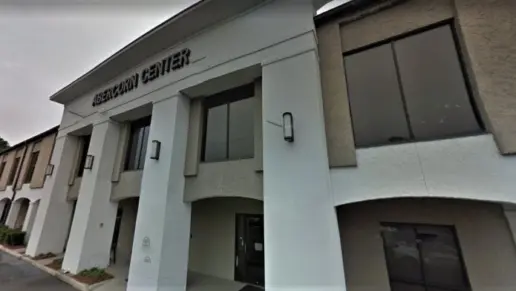Please, please, please stay away from this facility!!! This place is a money grab and nothing more. Willowbrooke at Tanner will do anything and everything to keep you there as long as they can. It must be nice to have Tanner Hospital sending you a steady stream of Cash Fl ...
About Willowbrooke at Tanner – Villa Rica
Willowbrooke at Tanner–Villa Rica is a behavioral health and drug rehab provider in Villa Rica, Georgia. Tanner Health, a nonprofit organization founded in 1949, helps people heal from various ailments through comprehensive, compassionate, and individualized treatments.
Their Villa Rica facility offers a full continuum of care for adolescents and adults ages 12 and up including inpatient care, inpatient detox, intensive outpatient (IOP), partial hospitalization, general outpatient (OP) and aftercare services. They can also support people with co-occurring mental health issues (dual diagnosis). It’s great that they offer all of this in one location, so clients don’t have to transition from one center to another as they progress in their recovery.
Clients at this facility have access to medication-assisted treatment (MAT) and a broad spectrum of therapies, including individual and group talk therapy and experiential therapies. An example of the latter is their creative therapy program which helps people overcome addiction, trauma and other significant challenges through art, drumming, and drama.
Another is animal therapy. In this program, clients can interact with therapy animals, such as dogs and horses. Animal therapy can be very helpful for people who have depression, self esteem issues, social anxiety, trauma and conduct disorders. There’s lots of research to confirm experiential therapies’ effectiveness but these treatments are not that common so it’s fantastic to see them here.
Another positive aspect of this facility is that their inpatient care program has a separate unit for adolescents aged 12 to 17 and young adults 18 to 25. That’s important since people in these age groups tend to have distinct needs from those ages 26 and older.
Latest Reviews
Rehab Score
Gallery
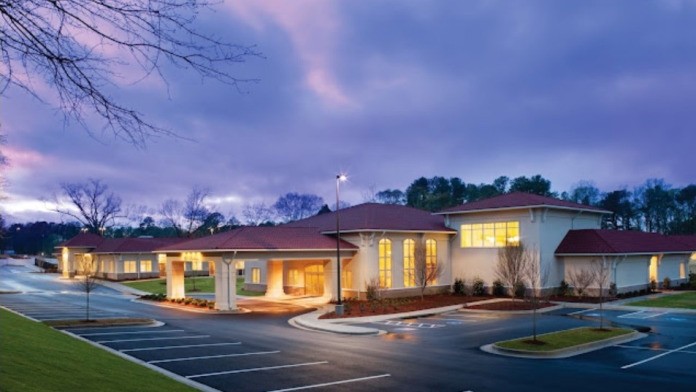
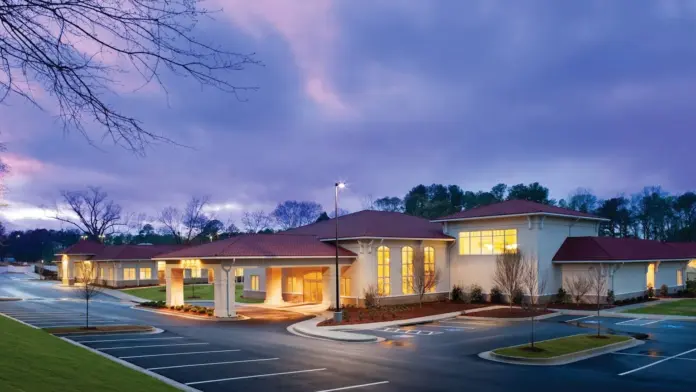
Location
Accepted Insurance
Other Forms of Payment
Medicaid is a state based program that helps lower-income individuals and families pay for healthcare. Medicaid covers addiction treatment so those enrolled can use their coverage to pay for rehab. When a program accepts Medicaid the client often pays very little or nothing out of their own pocket.
Private insurance refers to any kind of healthcare coverage that isn't from the state or federal government. This includes individual and family plans offered by an employer or purchased from the Insurance Marketplace. Every plan will have different requirements and out of pocket costs so be sure to get the full details before you start treatment.
Self-pay involves paying for treatment out of your own pocket. You can use savings or credit, get a personal loan, or receive help from family and friends to fund your treatment. If you don't have insurance or your insurance plan doesn't cover a specific program, self-pay can help ensure you still get the care you need.
Financial aid can take many forms. Centers may have grants or scholarships available to clients who meet eligibility requirements. Programs that receive SAMHSA grants may have financial aid available for those who need treatment as well. Grants and scholarships can help you pai for treatment without having to repay.
Medicare is a federal program that provides health insurance for those 65 and older. It also serves people under 65 with chronic and disabling health challenges. To use Medicare for addiction treatment you need to find a program that accepts Medicare and is in network with your plan. Out of pocket costs and preauthorization requirements vary, so always check with your provider.
Military members, veterans, and eligible dependents have access to specific insurance programs that help them get the care they need. TRICARE and VA insurance can help you access low cost or no cost addiction and mental health treatment. Programs that accept military insurance often have targeted treatment focused on the unique challenges military members, veterans, and their families face.
Addiction Treatments
Levels of Care
Treatments
The goal of treatment for alcoholism is abstinence. Those with poor social support, poor motivation, or psychiatric disorders tend to relapse within a few years of treatment. For these people, success is measured by longer periods of abstinence, reduced use of alcohol, better health, and improved social functioning. Recovery and Maintenance are usually based on 12 step programs and AA meetings.
A quality drug rehab in Georgia can help you overcome addiction. This environment is designed to help you address the complex issues contributing to drug dependence. The goal of treatment is to give you the tools you need to make a full recovery.
Many of those suffering from addiction also suffer from mental or emotional illnesses like schizophrenia, bipolar disorder, depression, or anxiety disorders. Rehab and other substance abuse facilities treating those with a dual diagnosis or co-occurring disorder administer psychiatric treatment to address the person's mental health issue in addition to drug and alcohol rehabilitation.
A combined mental health and substance abuse rehab has the staff and resources available to handle individuals with both mental health and substance abuse issues. It can be challenging to determine where a specific symptom stems from (a mental health issue or an issue related to substance abuse), so mental health and substance abuse professionals are helpful in detangling symptoms and keeping treatment on track.
Opioid rehabs specialize in supporting those recovering from opioid addiction. They treat those suffering from addiction to illegal opioids like heroin, as well as prescription drugs like oxycodone. These centers typically combine both physical as well as mental and emotional support to help stop addiction. Physical support often includes medical detox and subsequent medical support (including medication), and mental support includes in-depth therapy to address the underlying causes of addiction.
Programs



Clinical Services
For people facing behavioral health problems like depression or life after a traumatic event, animal-assisted therapy can be a significant treatment option in helping them return to a healthy life. Animal-assisted therapy provides patients with social contact, entertainment and allows them to experience acceptance. Willowbrooke at Tanner employs animal-assisted therapy options for children, adolescents and adults in inpatient and outpatient treatment programs.
Cognitive Behavioral Therapy (CBT) is a therapy modality that focuses on the relationship between one's thoughts, feelings, and behaviors. It is used to establish and allow for healthy responses to thoughts and feelings (instead of unhealthy responses, like using drugs or alcohol). CBT has been proven effective for recovering addicts of all kinds, and is used to strengthen a patient's own self-awareness and ability to self-regulate. CBT allows individuals to monitor their own emotional state, become more adept at communicating with others, and manage stress without needing to engage in substance abuse.
Creativity is inherently healing, and can help those in recovery express thoughts or feelings they might not otherwise be able to. Creative arts therapy can include music, poetry/writing, painting, sculpting, dance, theater, sandplay, and more. Unlike traditional art, the final product matters far less than the experience of creation and expression itself.
Studies have shown that horses are very social animals, often mirroring the actions of the person with whom they are interacting. Equine therapy creates a horse-human connection that is rich with opportunities and provides a focused, interactive learning activity in which the reward is often immediate for participants. Willowbrooke at Tanner operates an equine therapy program weekly during the summer to participants in various programs. Equine therapy is offered in partnership with Rachel’s Wish Foundation and the Possum Snout Horse Arena in Tallapoosa, Ga. Transportation, picnic lunches and snacks are provided.
Experiential therapy is a form of therapy in which clients are encouraged to surface and work through subconscious issues by engaging in real-time experiences. Experiential therapy departs from traditional talk therapy by involving the body, and having clients engage in activities, movements, and physical and emotional expression. This can involve role-play or using props (which can include other people). Experiential therapy can help people process trauma, memories, and emotion quickly, deeply, and in a lasting fashion, leading to substantial and impactful healing.
Research clearly demonstrates that recovery is far more successful and sustainable when loved ones like family members participate in rehab and substance abuse treatment. Genetic factors may be at play when it comes to drug and alcohol addiction, as well as mental health issues. Family dynamics often play a critical role in addiction triggers, and if properly educated, family members can be a strong source of support when it comes to rehabilitation.
Group therapy is any therapeutic work that happens in a group (not one-on-one). There are a number of different group therapy modalities, including support groups, experiential therapy, psycho-education, and more. Group therapy involves treatment as well as processing interaction between group members.
In individual therapy, a patient meets one-on-one with a trained psychologist or counselor. Therapy is a pivotal part of effective substance abuse treatment, as it often covers root causes of addiction, including challenges faced by the patient in their social, family, and work/school life.
Nutrition therapy, aka medical nutrition therapy (MNT), is a way of treating physical, emotional, and medical conditions through diet. Specific dietary plans are designed by professional nutritionists or registered dietitians, and patients follow them in order to positively affect their physical and mental health.
Trauma therapy addresses traumatic incidents from a client's past that are likely affecting their present-day experience. Trauma is often one of the primary triggers and potential causes of addiction, and can stem from child sexual abuse, domestic violence, having a parent with a mental illness, losing one or both parents at a young age, teenage or adult sexual assault, or any number of other factors. The purpose of trauma therapy is to allow a patient to process trauma and move through and past it, with the help of trained and compassionate mental health professionals.
Amenities
-
Private Setting
-
Private Rooms
Staff & Accreditations
Staff
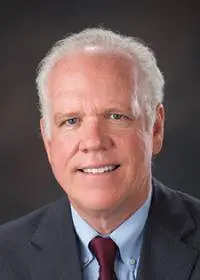
President & CEO

Executive VP, Chief Medical Officer & Chief Quality Officer

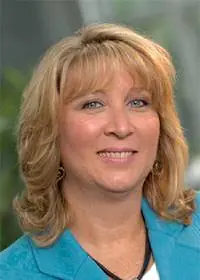
Executive VP & CFO
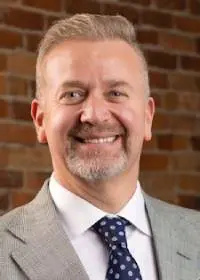
Executive VP & COO
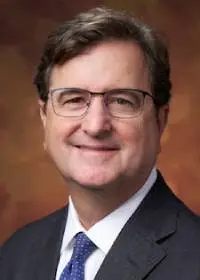
Chief Administrative Officer
Accreditations

State Licenses are permits issued by government agencies that allow rehab organizations to conduct business legally within a certain geographical area. Typically, the kind of program a rehab facility offers, along with its physical location, determines which licenses are required to operate legally.
State License: Georgia

The Joint Commission, formerly known as JCAHO, is a nonprofit organization that accredits rehab organizations and programs. Founded in 1951, the Joint Commision's mission is to improve the quality of patient care and demonstrating the quality of patient care.
Joint Commission Accreditation: Yes
Contact Information
20 Herrell Road
Villa Rica GA, 30180







